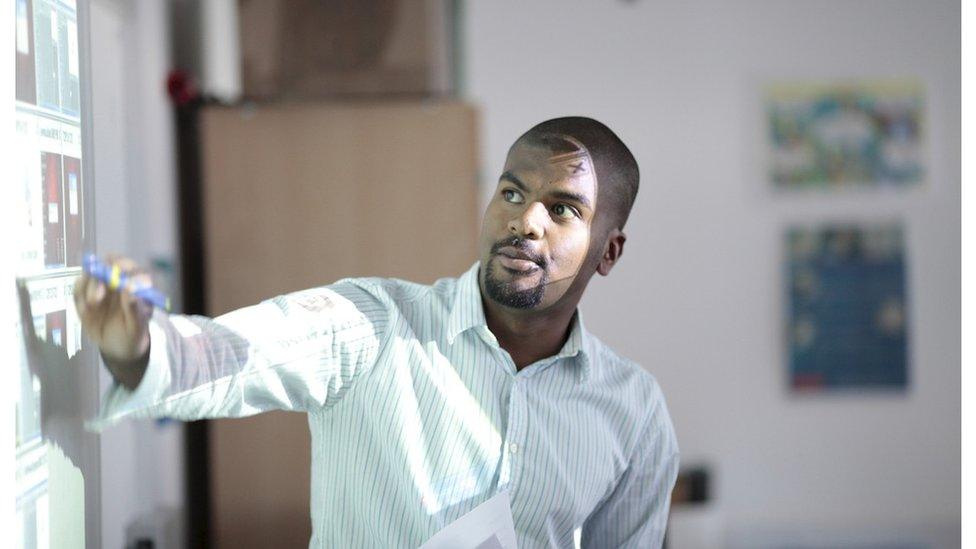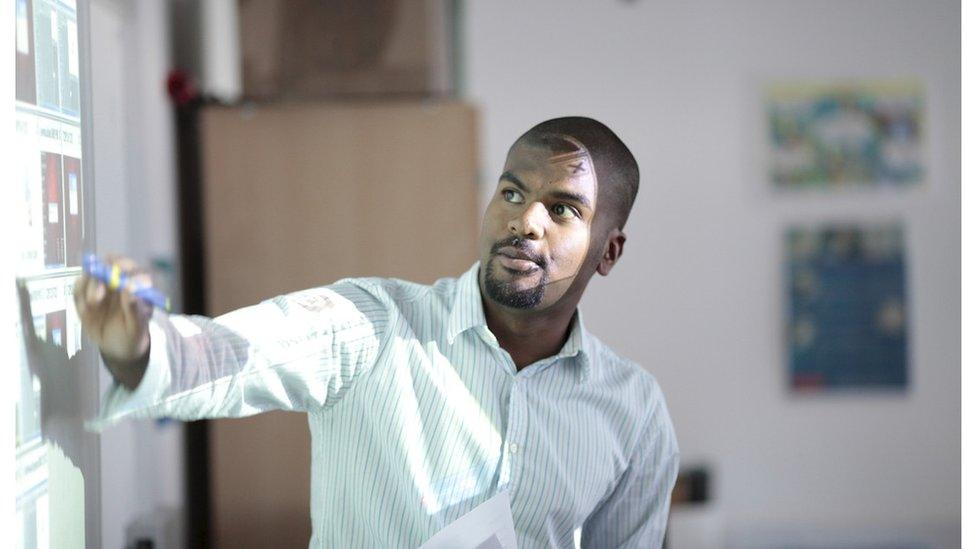One in three primary schools has no male teachers, report says
- Published

More than half of the state primary schools in Rutland do not have any male teachers
Almost one in three state funded primary schools do not have any male classroom teachers, a study suggests.
Rutland in the East Midlands has the highest proportion of primary schools without any male teachers - 52.9%.
The Warwick Business School report, external says the proportion of schools without a male classroom teacher has increased over the last 12 months.
The report's author said they believed a lack of male teachers was bad for pupils.
Dr Joshua Fullard, assistant professor of behavioural science at Warwick Business School, said: "Worryingly, the decline in the number of male classroom teachers is getting worse.
"This has an impact on the education that children receive. There is a large body of research that shows students benefit from being educated by a teacher with certain similarities to them.
"Boys from less affluent backgrounds are already the lowest achievers in school. They are the students who would benefit most from a male teacher, but they are less and less likely to have one.
"It's not just boys who are losing out. Having no gender diversity could negatively affect how a school functions, as schools in special measures are less like to have a male classroom teacher."

The report's author said men were more likely to consider finances when choosing a profession
The report, titled Teacher Gender Diversity in England 2010-2022, used data from the School Workforce Census (SWC).
It found that nearly a quarter (24.3%) of all state schools in England had no male classroom teachers.
Raising teachers' pay, reducing working hours and improving school leadership could help boost recruitment and retention, the report said.
The study found that more than two in five (41.9%) of the primary schools placed in special measures by Ofsted had no male classroom teachers.
The report said: "This could be due to selection - male teachers are in relatively high demand and therefore might be less likely to sort into the lowest achieving school.
"Alternately, having no gender diversity in the classroom might negatively impact the functioning of a school."
The report called for teachers' pay to be raised by more than 10% and for a merit-based reduction in tuition fees for university-led teacher training to be introduced.
Dr Fullard said: "Men are more likely to consider finances when deciding to go into, or leave, a profession. This explains why the persistent decline in teachers' pay has affected male teacher numbers more than their female counterparts."

The Department for Education said it wanted teaching to be an inclusive profession
Julie McCulloch, director of policy at the Association of School and College Leaders (ASCL), said: "A great deal of work needs to be done to make teaching a more attractive career to men and women alike. This includes reversing the real terms pay cuts that teachers have experienced since 2010, reducing unmanageable workloads and ensuring all schools are properly funded."
A Department for Education spokesperson said: "We want teaching to be an inclusive profession, with equal opportunity for all, regardless of gender, to develop and progress in their careers.
"Since 2010, there has been an increase of over 7,000 male teachers in state-funded nursery and primary schools.
"We want to continue bringing great people into teaching and have introduced bursaries worth up to £27,000 tax-free and scholarships worth up to £29,000 tax-free, to attract talented trainees in subjects such as mathematics, physics, chemistry and computing."

Follow BBC East Midlands on Facebook, external, on Twitter, external, or on Instagram, external. Send your story ideas to eastmidsnews@bbc.co.uk, external.
Related topics
- Published17 June 2022

- Published5 October 2016

- Published2 September 2011